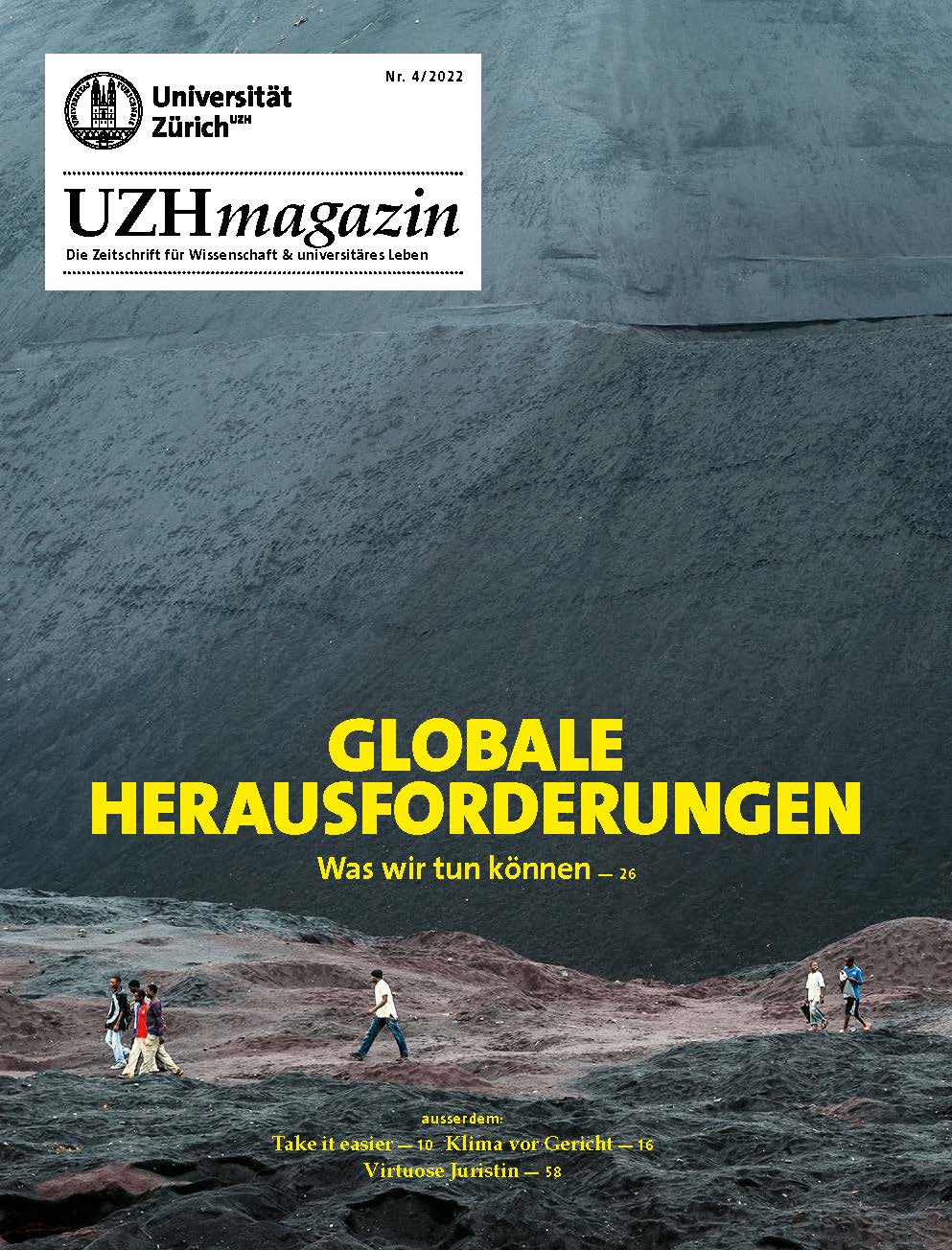UZH Magazine on "Global challenges" – Insights from our professors
The new UZH Magazine is all about global challenges. The global community is being challenged existentially: Climate crisis, wars, poverty and inequality, digitalization and a new political world order. In the current issue, these problems are analyzed with UZH researchers, including professors from our Faculty, and possible solutions are outlined.
UZH economists have formulated five major challenges that we must address: making the economy sustainable, fighting poverty and inequality, managing the digital revolution, developing effective policies, and overcoming the crisis of globalization. The Department of Economics' to-do list inspires this issue's dossier: the UZH Magazine met UZH scientists, talked to them about the challenges and asked what can be done. Among them are the following six researchers from our Faculty:
Guilherme Lichand: "Schoolroom instead of cocoa plantation"
Many children in the Ivory Coast and Malawi do not go to school because they have to work on cocoa plantations or are married off early. Economist Guilherme Lichand is using innovative experiments to find solutions to the problem.
Ernst Fehr: "Hurdy does it"
Today, economics is a universal behavioral science, says Ernst Fehr. In an experiment in schools, the economist has shown that young students who are good at self-regulation learn better. This ability can be trained.
Gregory Crawford: "A declaration of war on the data octopi"
Google and Facebook sell our personal data and make billions in profits from it. They should share these profits with us, say economist Gregory Crawford and philosopher Francis Cheneval. And we should have a right to our data.
Falko Paetzold: "Investing green"
Investors can contribute to the sustainable development of the economy, says UZH economist Falko Paetzold. The most effective way is to invest money in innovative startups.
Björn Bartling: "How we become fairer"
People often act not only self-interestedly, but also fairly. This is shown, for example, by their willingness to pay more for fair and sustainable products. Whether they do so, however, depends strongly on their awareness.
David Dorn: "Preventing social decline"
Income inequality is on the rise. This is leading larger segments of the population to turn away from the system, and not just in the U.S., says David Dorn. The economist on redistributing wages, temporary protective tariffs and the future of work.
communication@oec.uzh.ch
